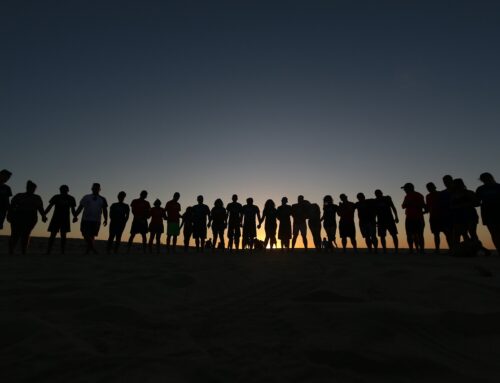I’ve never fully understood how God’s omnipotence, his omniscience, and our free will all coexist. This particular combination seems like a trifactor with an inherent conflict of sorts. How is my will free if God knows what I’m going to do and if he directs my steps—as I regularly ask him to do? Does he use his omnipotence to persuade me to act according to his will?
For some people, it is less about semantics and more about making sense of the iniquities in this world. If God is good, loving, and all-powerful, why is the world full of hunger, pain, suffering, violence, dishonesty, and all manner of awful things?
In his symposium titled “A Biblical Critique of Open Theism,” Brian Orr contrasts classical theology with open and process theology and points out some of the problems with the latter two. He answers questions such as, “Is it an underlying premise in open theology that God is learning?” and “Why is it important for theologians to uphold divine simplicity?”
Much of the presentation left me going, “Huh?” Some terms were familiar to me; others were new. Added to the probing questions above, it was a little overwhelming.
So, I found it helpful to look up the definitions below, and I suggest reading through them before tackling the symposium:
- Theology: the study of the nature of God and religious belief.
- Omnipotence: having unlimited power.
- Omniscience: knowing everything.
- Omnipresence: being present everywhere at the same time.
- Free will: the ability to act at one’s own discretion.
- Determinism: the belief that events and actions are brought about by causes external to human will.
- Divine simplicity: the quality of God where he is not composed of any physical or metaphysical parts, but where his essence and existence are one and the same.
- Classical theology: the orthodox view that holds that God is omnipotent, omniscient, and omnipresent, and that the Spirit prompts us to act in accordance with God’s will.
- Open theology: a view that denies God’s omniscience and holds that the future is “open,” hidden from God and dependent on our choices.
- Process theology: a view that denies God’s omnipotence and holds that God cannot act in a manner that impinges on our free will; God and creation are interdependent.
(The above were adapted from Orr’s symposium, Oxford Dictionaries, the Internet Encyclopedia of Philosophy, and definitions provided by “Rebecca Writes.”)
The thing is … I long ago came to the conclusion that I am okay with not understanding the omniscience–omnipotence–free will trifactor fully. If I had all the answers, I wouldn’t be human and God wouldn’t be God.
I believe this gap in knowledge and understanding is normal—necessary, even. It reminds me of a line from one of Jostein Gaarder’s novels, which tended to layer philosophical debate with storytelling. In Sophie’s World, a father wrote to his daughter: “Dear Hilde, if the human brain was simple enough for us to understand, we would still be so stupid that we couldn’t understand it.”
So, while it was interesting to learn about how different theologies affect our view of God, I will continue to choose to trust: to trust that God is who he says he is, trust that he loves me, trust that he will guide my steps.
“Trust in the Lord with all your heart, and do not lean on your own understanding. In all your ways acknowledge him, and he will make straight your paths.” (Proverbs 3:5–6 ESV)
- To watch the full presentation critiquing open theology by Brian Orr, follow this link.
- Contact SATS to find out more about studying God’s word.
- You’ll find the Internet Encyclopedia of Philosophy here.
- And the Rebecca Writes blog here.
Short Bio: Carrie Milton is a veterinarian and language practitioner. After completing her Bachelor of Veterinary Science and working with a variety of animals for a number of years, she reawakened her love for the written word. Accredited by the Professional Editors’ Guild, she has tried her hand at everything from theses to fiction.




